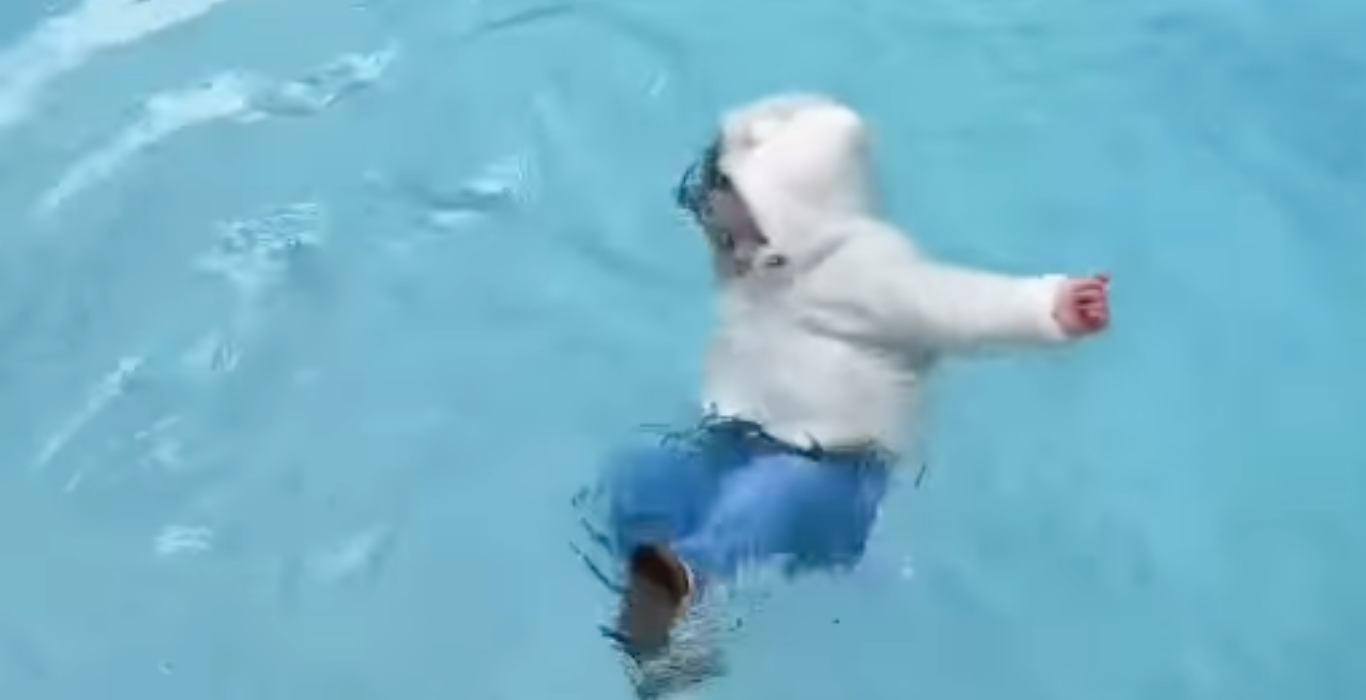A viral video showing a 14-month-old baby floating unaided in a swimming pool has sparked a mixture of amazement and concern online. The child, placed in the water by her father, instinctively rolled onto her back and floated calmly — a natural reflex known to some as the “infant survival response.”
While many viewers praised the baby’s apparent water confidence, child safety experts have quickly stepped in to caution parents against unsupervised or untrained exposure to water, even if the child appears to handle it well.
Instinct Meets Training
Babies under 18 months may display what’s known as the “swimming reflex” or a natural inclination to hold their breath and move limbs in water. In some cases, infants can instinctively roll over and float, particularly if they’ve undergone Infant Swimming Resource (ISR) or similar survival training, where children are taught how to float and breathe until help arrives.
“This reflex can be incredible to witness,” said Emma Granger, a certified infant swim instructor. “But it’s crucial to understand that floating like this doesn’t make a baby ‘drown-proof.’ These skills are developed through careful, supportive training—not trial and error.”
Parental Intent vs Public Responsibility
The child’s father, whose identity has not been publicly disclosed, reportedly claimed he wanted to “see what she could do” and praised her for staying afloat. Though the video has gone viral with comments praising the baby’s instincts, many others raised alarms about the risks of using infants for untested swimming challenges.
Experts agree that while the outcome in this instance was positive, the approach could have been dangerous.
Water Safety Should Always Come First
Drowning is one of the leading causes of accidental death among young children. Even infants who have been trained in water survival should never be left unsupervised in or around water, and sudden immersion without preparation can cause panic or trauma.
“Controlled environments, emotional support, and expert supervision are non-negotiable,” said Granger. “Celebrating a baby’s floating ability is fine—but only when it’s done safely and ethically.”
A Teachable Moment
The video has reignited discussions about infant water safety and the value of early swimming lessons. Organisations such as the American Academy of Pediatrics recommend swim lessons as early as 1 year old, especially for families with access to pools or open water.
Parents are encouraged to explore certified infant swim programmes and to always maintain close, arms-length supervision when children are in or near water.


